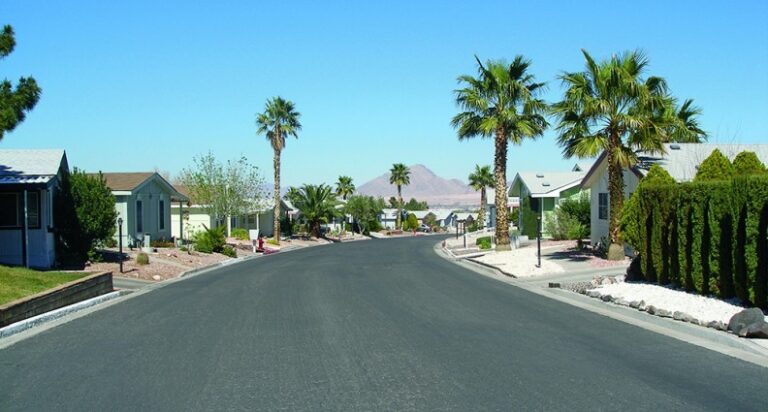Homeownership without the traditional maintenance: Living in a mobile home provides you the opportunity to own your own home while avoiding land maintenance and property taxes. Plus, most lot rental fees to park your mobile home include water, sewer, garbage, and recycling pickup.
Cost-efficient: While price varies based on your location, buying a mobile home will likely run you an average of $111,900 for a new manufactured home in 2021, while the median sales price for a traditional home is now more than $400,000. Lot rent ranges about $200–$300 a month on average in the US—although higher in more upscale communities.[1]
Family-oriented neighborhoods: Most mobile home parks implement background checks and up-to-date safety protocols to ensure residents feel protected and comfortable to develop relationships with neighbors.
Community perks: Many communities host fun, curated events for residents, are located in convenient, easily accessible areas, and provide ample spacing between mobile homes. Plus, no more worrying about pet rental fees or loud upstairs neighbors!
Trendy: Tiny homes are the 21st century, hipster-approved mobile home option that make unsightly mobile homes a thing of the past. From eco-luxe camping trailers that are entirely suited for full-time living to actual tiny homes that are just smaller versions of the real deal on wheels, single- and double-wide are no longer the only options.
Customizable space: Whether you’re looking to downsize or are an interior design fiend with custom home decor dreams, you will find you can be more selective and practical with a mobile home’s condensed space. They’re designed to fit everything you need in a smaller space and provide you with the perfect opportunity to do more with less.





